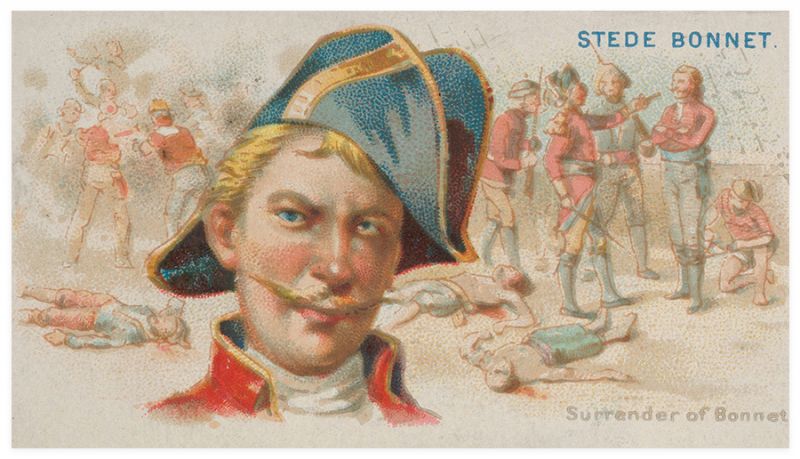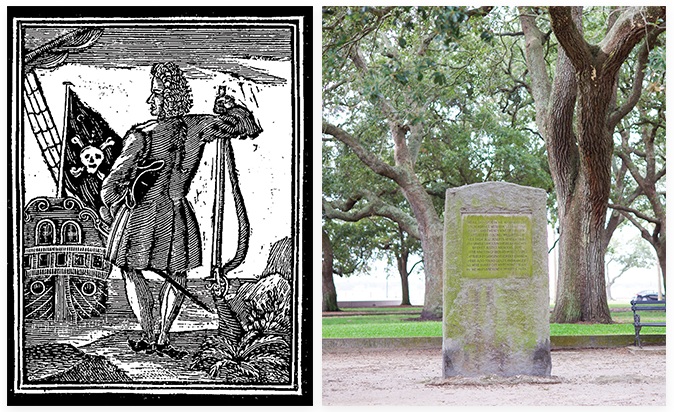Bonnet was hanged to death near White Point Garden in December 1718

A circa-1888 illustration of the surrender of Bonnet for Allen & Ginter cigarettes.
Stede Bonnet, the “gentleman pirate,” was executed here on December 10, 1718. His true story died with him—and then the storytelling began.
Pirates have been tamed of late. Outfitted tour guides cry “Ahoy, matey!” unaware perhaps that “matey” comes from “matelotage”—a version of “marriage” between two men. Pirates terrified Charles Towne’s early settlers—not just because of their violent depredations on ships at sea, but also because of their flouting of social norms. Instead of expected hierarchies and chains of command, pirate ships could be forms of floating democracies.
Stede Bonnet, born in Barbados in 1688, was seen as a personal affront to many rulers of the Carolina colony because he had come from a landed family, had the rank of major, was married, and had children before he chucked it all. (In fact, the record says it was finding married life irksome that drove him to piracy.) Those who broke all laws were assumed to be low wretches and failures; a respectable Christian gentleman joining their ranks by choice could lead others to undermine society and commit heresies.

(Left) An engraving of Stede Bonnet from A General History of Pyrates in 1724; (Right) A memorial in White Point Garden marks a spot near where Bonnet and 29 of his men were hanged to death after being found guilty after a trial.
Bonnet sometimes joined forces with Edward Teach, known as Blackbeard, along the eastern seaboard. To stop their attacks on local shipping, William Rhett (whose house stands on Hasell Street) and his men captured Bonnet and crew off North Carolina in August 1718, and a series of trials began.
Bonnet escaped that October, was recaptured on Sullivan’s Island, and used his gentleman status in an unsuccessful appeal for clemency. Judge Nicholas Trott’s sentence was carried out, and Bonnet was hanged at the low water mark on the southern tip of the peninsula.
In the 1930s and ’40s, pirate pageants were held and re-enactments of his trial were staged on the Battery, where a stone memorial was unveiled in 1943 replacing a wooden one on Water Street. Today, the romancing of Bonnet continues. You can watch HBO’s Our Flag Means Death, in which Bonnet and Blackbeard are romantically linked. Ahoy, matey, indeed!